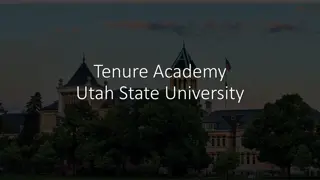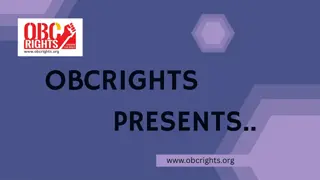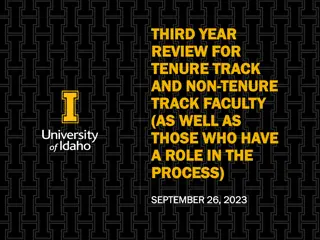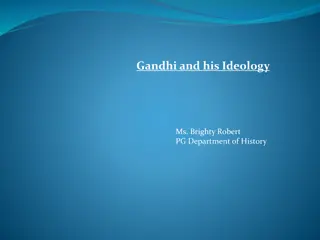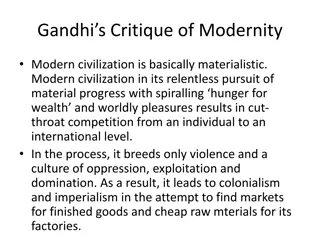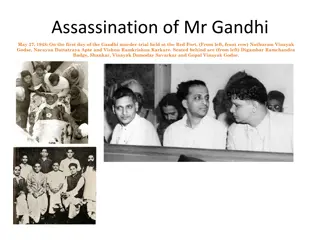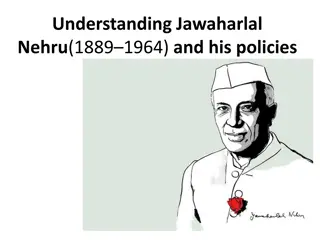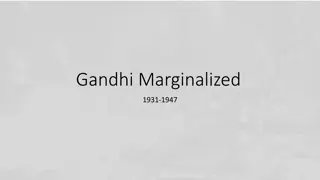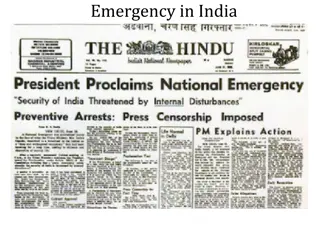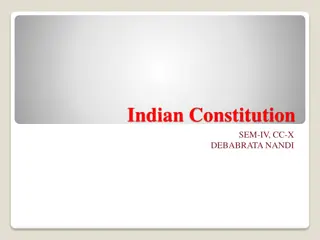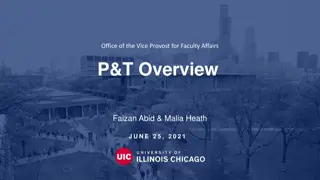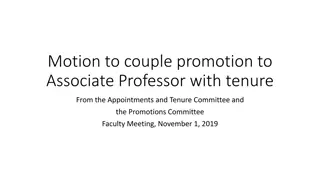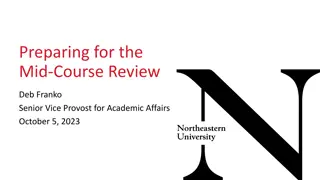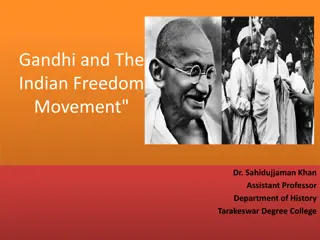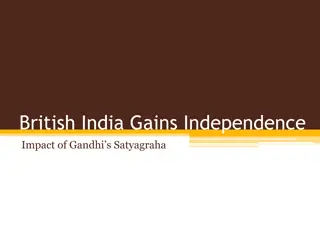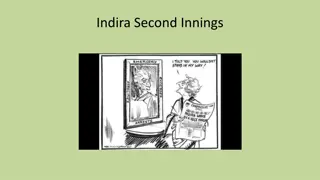Political Dynamics and Challenges During Nehru and Indira Gandhi's Tenure
The period from Nehru to Indira Gandhi's leadership saw significant shifts in Indian politics. The Syndicate, comprising party bosses from Nehru's time, played a crucial role in decision-making. Lal Bahadur Shastri faced challenges like Naga insurgency, language debates, and the 1965 war with Pakistan. Indira Gandhi's rise marked a turning point as she defied expectations and emerged as a strong leader, addressing issues like food shortages. The political landscape was marked by power struggles and evolving dynamics during this transformative era.
Download Presentation

Please find below an Image/Link to download the presentation.
The content on the website is provided AS IS for your information and personal use only. It may not be sold, licensed, or shared on other websites without obtaining consent from the author. Download presentation by click this link. If you encounter any issues during the download, it is possible that the publisher has removed the file from their server.
E N D
Presentation Transcript
Nehru to Indira DEMOCRACY POPULISM to 1964 TO 1971
Role of the Syndicate Mostly the party bosses of Nehru s times None of them could vie for Prime Minister position But feared a strong domineering figure like Morarji Desai Find alternative in Shastri
Important Players K. Kamaraj Morarji Desai Lal Bahadur Shastri Do note, although she is interested, INDIRA GANDHI was not considered
Shastri : Main Problems Faced Naga Insurgency LANGUAGE Question Kashmir/ Pakistan = WAR Agriculture: Shortages and Famine
Language Question (Hindi as National Language ) * CONSTITUTION = HINDI AS NATIONAL LANGUAGE * OPPOSITION FROM NON HINDI- SPEAKING STATES * COMPROMISE = ENGLISH FOR 15 YEARS AS LANGUAGE OF COMMUNICATION BETWEEN STATE AND FEDERAL, AND WITHIN FEDERAL GOVERNMENT * NEHRU DIE MAY 1964, JAN 26TH 1965 WAS WHEN NATIONAL LANGUAGE TO BE INAUGURATED * RESENTED BY IMPORTANT FIGURES IN SOUTH INDIA OPPOSITION LED BY THE DMK S C. ANNADURAI, HUGE PROTESTS AGAIN DEMONESS HINDI IMMOLATIONS ETC. EVEN FROM MAJOR INC FIGURES SUCH AS KAMARAJ, NIJALINGAPPA * SHASTRI GIVE IN, GRACEFULLY, THOUGH QUITE A CHAMPION OF HINDI HIMSELF.
1965 War with Pakistan over Kashmir Abdullah: Chou En Lai conversations 1962 War Context Operation GIBRALTAR by AYUB KHAN USSR Ceasefire Shastri die in Tashkent
Return of the Syndicate Desai once again in the fray Syndicate fear Desai, as they had after Nehru s death. Promote Indira Gandhi. Indira no relation to the Mahatma, Nehru s daughter married a Parsi, Feroze Gandhi, marriage not work The Syndicate hoped Indira would be a puppet and they, puppet masters. Referred to her as a dumb doll for whom they would speak She proved to be very different from their misconceptions about her!
Many problems of Indira Gandhi FOOD SHORTAGES. A series of bad monsoons, series, and lack of sufficient attention to agriculture in the Nehru era, results in near- famine conditions. The Soviets were in no position to provide grain, US was, but wanted support for US foreign policy in return (Vietnam war) US support came through PL 480 allowing India to pay in rupees for foodgrain. Rupees held in US accounts in India. Much of the academic study of India through National Resource Centers, libraries, fellowships, study abroad programs were funded with that money Regional separatism: Mizo, Naga, Kashmir, Andhra Hindu nationalists General mood of disaffection not make Indira s early years easy
1967 Elections and Naxalites FOURTH general elections in 1967 (1952-57-62-67) Elections no longer a novelty, but a 5-yearly festival! For a newly elected PM, beholden to the SYNDICATE for her position, not a great result. INC still held a majority in Parliament, but lost in many states Better coordination among opposition (see table on p 420) Serious challenges from DMK in south where MGR emerges as a political figure Most significant challenge though from the Left. Why? Poverty, food shortages, no real progress for the agricultural workers, who NOW FELT DEMOCRATICALLY EMPOWERED, and had choices Though illiterate made savvy political choices, often voting for different parties for national and state elections. In 1967 lost not only KERALA, but also WEST BENGAL to Communists (even though the Communist party split between the CPI and new party the CPI (Marxist) Led to changes in Bengal, which you can read about in textbook. Of greater significance was the rise of the NAXALITE movement Start as a peasant movement in NAXALBARI (hence Naxalite) in rural north Bengal, but soon inspired students and foreign radicals as well This is 1968, students across the world protesting, barricades in Paris, student protests in the US
Democracy and Populism Indira s response is to head to full-scale populism Populism and Democracy: Difference? Nehru a DEMOCRAT committed to building INSTITUTIONS to stand test of time. His daughter more of a POPULIST, gain popularity at any cost, including its cost to UNDERMINING INSTITUTIONS if necessary. This has its own costs Her first move is to adopt a leftist and populist persona. Her decision to nationalize banks and abolish privy purses, had little to do with IDEOLOGY. Unlike Nehru she had little commitment to Socialism as an ideology. OTOH it had everything to do with VOTES, elections, and POLITICAL POPULARITY Leftist persona did not stop her from putting down the NAXALITES with a VERY HEAVY HAND WHY a leftist persona? To distance herself from the SYNDICATE as well as internal opponents like DESAI. With this persona Indira could paint them as conservative, establishment figures, in league with the industrialists and the capitalists, and reactionary elements like the old ruling families Her moves first got her victory over the old guard of her own party in 1969, and later in 1970, in a snap election that she called where she split the INC. This was the first time that an election called before a 5-year term, though after Mrs. Gandhi, this was certainly not the last!!
Populism and Democracy Author of a report on Global Populisms (2020) says, Populism argues that elites are corrupt and the people need better representation, but makes very few policy commitments beyond this criticism. Populists view the formal institutions of liberal democracy as corrupt creations spawned by crooked establishment elites and so they systematically hollow out and undermine these institutions Although populists claim to represent the people, they often [exclude].. vulnerable and marginalized populations, such as religious or ethnic minorities and immigrants.
Garibi Hatao (abolish poverty) In the early 1971 election Mrs Gandhi, the former dumb doll, positioned herself as the champion of the downtrodden, the masses, and rhetorically attacked privilege in all forms, the princes, the capitalists, the large landlords and the like. Adroitly turned around of opposition slogan Remove Indira to Remove Poverty. In fact Abolish Poverty became her punchline for the election Military victory over Pakistan (Bangladesh War), gave her the crowning moment of her career later that year.
Short Reign of a Victorious Goddess? Early 1972 Mrs. Gandhi was seemingly in total control Compared (even by the opposition, such as leaders of the RSS) to Durga, the Hindu warrior Goddess who slays demons She was popular, had trounced the opposition, and had no political challengers in sight Yet, two years later there is a mass movement to oust her from office Three years later she has to suspend civil liberties, censor the press, and jail opposition to remain in power




